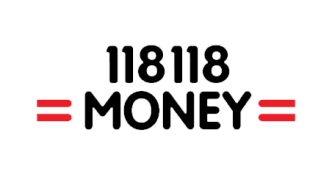Our guide to no guarantor loans in the UK
What is a no guarantor loan?
A no guarantor loan is a loan that you can take out without the lender requiring that you have a guarantor who would agree to repay the loan if you can’t. Without a guarantor, you are solely responsible for the repayment of the loan and will bear the consequences yourself if you don’t keep up with the loan repayments.
You can use a no guarantor loan for a variety of purposes, including buying a new car, paying for a holiday or special occasion, covering emergency expenses, or consolidating debt, for example.
The opposite of a no guarantor loan is a guarantor loan.
Can I get a loan without a guarantor?
There are several types of loans you can get without a guarantor, including secured and unsecured loans. If you take out a loan without a guarantor, you alone will be responsible for making the payments and paying off the loan in full.
Can I get a no guarantor loan with bad credit?
It might be possible to get a loan with no guarantor when you have a bad credit score, but it’s normally trickier than if your credit was good.
When you have bad credit, lenders worry that you can’t be fully relied upon to pay back what you owe when you should. Because of this, you might find fewer lenders are willing to offer you a loan. It’s also the reason why loans for bad credit tend to have higher interest rates, and even more so if you have no guarantor.
If you’re willing and able to put forward something of value that you own as collateral against what you borrow, secured loans for bad credit will generally offer lower interest rates in comparison. On the downside, you could lose that asset to your lender if you fail to make your loan repayments when you should.
The best way to find out if you can get a no guarantor loan with bad credit is to check your eligibility through our partner Monevo.
Types of no guarantor loans
- Unsecured loans: Also called personal loans, these loans don’t require a guarantor or an asset as security. How much you’re allowed to borrow will depend on a number of factors including your credit score and the repayments you can afford to make.
- Secured loans: As the name suggests, secured loans require that you offer some form of security or collateral – perhaps your home or car – in order to get the loan, but you don’t necessarily need a guarantor. These loans will generally have lower interest rates than personal loans, but you risk losing the asset you put forward to your lender if you don’t keep up with your repayments.
- Payday loans: Payday loans are a type of short-term, unsecured loan that don’t require a guarantor. They are often presented as an option if you have bad credit, but they tend to have much higher rates of interest than other loans. Because of this, it’s always best to explore the risks of, and alternatives to, a payday loan before taking one out.
Pros and cons of no guarantor loans
There are certain advantages that no guarantor loans can offer in the right circumstances, but some important drawbacks to be aware of too.
Pros
- You don’t need to find and ask another person to be your guarantor, or worry that they might one day have to pay off your loan.
- There are usually more no guarantor loan options available than if you’re borrowing with the backing of a guarantor.
- Applying for a no guarantor loan and getting your funds could be quicker and easier than with a guarantor, which would necessitate additional checks and legal arrangements.
- They can offer a straightforward and fast way to raise funds, sometimes on the same day that you apply.
- You don’t have to use your house or another asset as security against the loan if it’s unsecured.
Cons
- No guarantor loans will generally come with higher interest rates than if you have a guarantor, particularly if you have bad credit.
- Not having a guarantor might make lenders reluctant to lend you larger amounts, and even more so if you have poor credit.
- Paying the loan back is your responsibility alone, and could see you lose your home or car if they are used as collateral against a secured loan and you can’t make your repayments.
- If you have poor credit, not having a guarantor might make it more difficult to get accepted for a loan.
- The number of lenders willing to offer no guarantor loans if you have bad credit is smaller than if your credit is more favourable.























